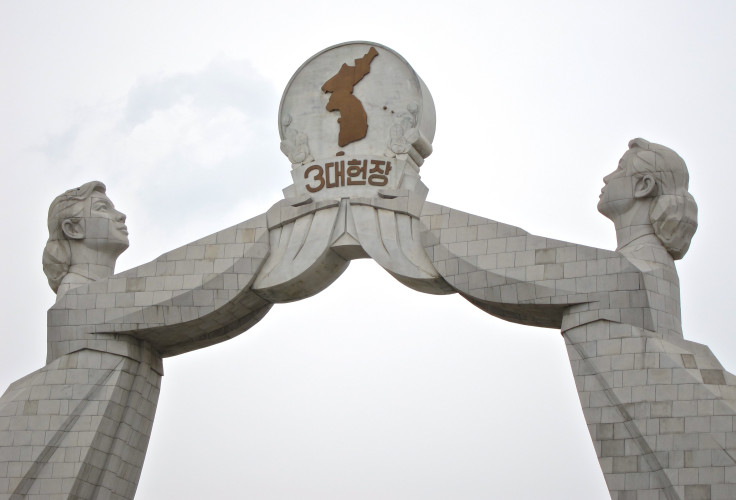North Korea Dismantles Monument Symbolising Union With South: Report
The structure, officially called the Monument to the Three Charters for National Reunification, was completed after an inter-Korea summit in 2000.

North Korea has razed to the ground the monument that symbolised hope that someday North and South Korea may reunite.
The Arch of Reunification has been demolished, but there is no clarity on exactly when it was done. However, the monument is no longer visible in satellite imagery, according to a report by NK News, an online publication that monitors North Korea.
The structure, officially called the Monument to the Three Charters for National Reunification, was completed after an inter-Korea summit in 2000. North Korean dictator Kim Jong Un had called for its removal while describing it as an "eyesore" in a speech at the Supreme People's Assembly on January 15.
In the speech, he made it clear that there is no possibility of the country reuniting with South Korea. He also called for a change in the country's constitution so South Korea could be declared a "hostile state".
The North Korean leader has also decided to shut down the agencies that oversee unification efforts and inter-Korean tourism, according to the state-run KCNA news agency.
The Committee for the Peaceful Reunification of the Country, the National Economic Cooperation Bureau, and the Mount Kumgang International Tourism Administration will all be shut down.
It came days after Kim said that the country is no longer seeking reconciliation and reunification with South Korea in a New Year's Day address.
"The reunification of Korea can never be achieved with the Republic of Korea (South Korea's official name)," the decision adopted by the assembly said. Kim added that the North does not want war, but also does not have any intention of avoiding it.
"In the event of war on the Korean Peninsula, I think it is also important to reflect on the issue of completely occupying, suppressing, and reclaiming the Republic of Korea and incorporating it into the territory of our Republic," Kim said.
"The danger of the outbreak of a war to be caused by a physical clash has considerably aggravated," he added.
The two Koreas remain technically at war with the presence of nearly two million troops at the border. The Korean War lasted for three years, from June 1950 to July 1953, after communist North Korea, backed by the Soviet Union and China, invaded South Korea, which was supported by United Nations forces led by the US.
The war ended with an armistice and the relations between the two have ebbed and flowed over the last few years. However, both countries had previously declared they wished to one day peacefully reunify the peninsula.
© Copyright IBTimes 2025. All rights reserved.






















